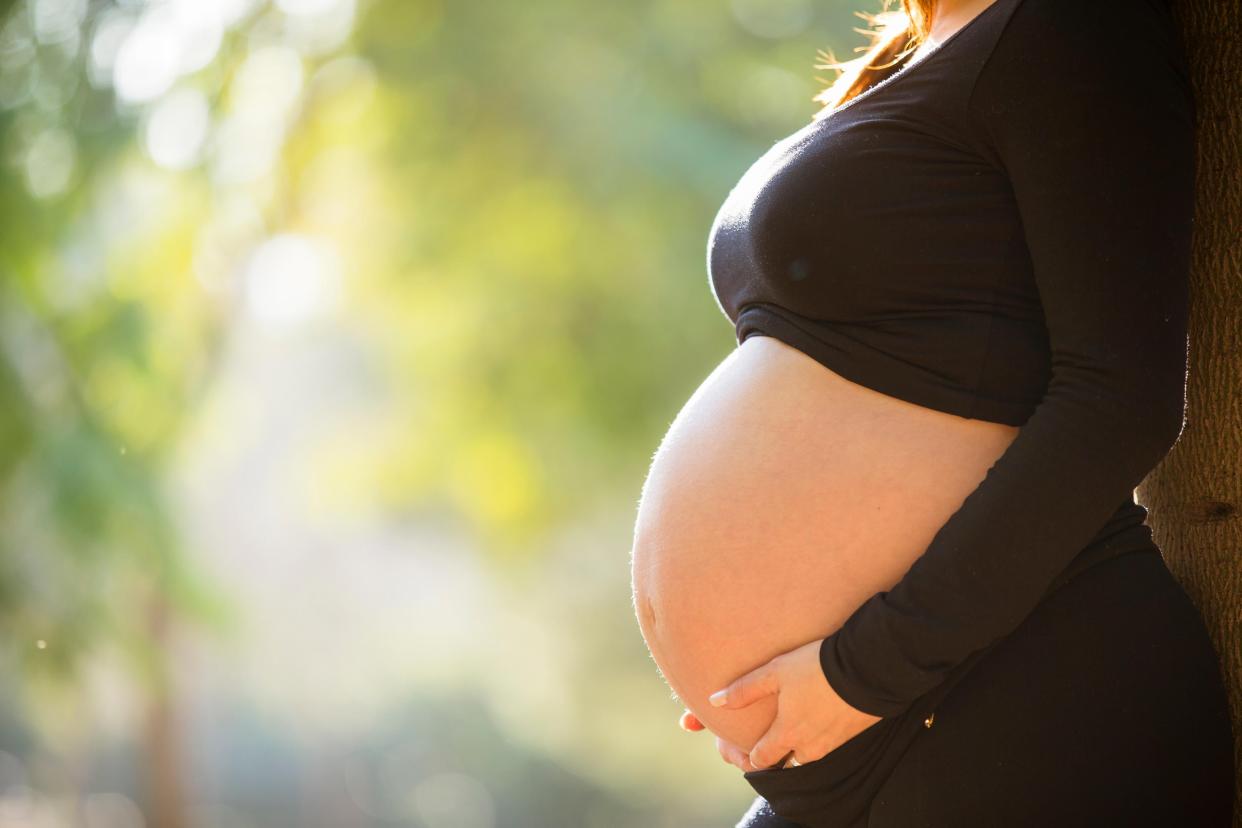New mothers ‘twice as likely’ to suffer from postnatal depression in lockdown

Symptoms of postnatal depression include feeling low, struggling to bond with your baby, finding it difficult to concentrate or sleep, and suicidal thoughts
New mothers were twice as likely to suffer from postnatal depression in lockdown with women experiencing isolation and exhaustion, a new study has found.
A paper published by University Collge London noted a lack of social support triggered postnatal depression and called for the government to acknowledge the troubling repercussions lockdowns have had on new mothers when implementing future measures to tackle the pandemic.
Researchers found almost half of women with babies who are six months or younger endured postnatal depression in the first national lockdown last spring - with this figure more than double average rates for Europe prior to the Covid crisis.
Postnatal depression affects mothers with newborns and symptoms include feeling low, struggling to bond with your baby, finding it difficult to concentrate or sleep, and suicidal thoughts.
The study, which polled 162 mothers, found new mothers who had more contact with others, in person or via technology, suffered fewer symptoms of depression.
But mothers said although speaking to loved ones on the phone or via video calls or sending texts or messages via social media was positive, it ultimately was not enough.
Women said they felt isolated, exhausted, anxious, and experienced feelings of guilt - with new mothers who had partners not able to help with childcare, household chores or homeschooling suffering the most during lockdown.
One woman said: “I think lockdown has made me feel like I’m not a person in my own right anymore. Not having anyone to hold him or to help out a bit makes me feel it’s all me and it’s a lot of pressure, which I can resent. I feel like I don’t have any time to rest.”
Another added: “It has definitely made me more anxious – am I doing enough for my baby, is she ok, is she healthy and happy, should I be doing more, do people think I’m a good mother? Much of this is because it’s hard to communicate online.”
A third said: “We haven’t had anyone come over to give us a break since before lockdown and it’s exhausting.”
Another mother said she was “exhausted” and “not able to concentrate on either” of her children.
Dr Sarah Myers, whose study was published in the journal Frontiers in Psychology, said: “Caring for a new baby is challenging and all new mothers suffer some level of mental, physical and emotional exhaustion.
“Low social support is one of the key risk factors for developing postnatal depression. Social distancing measures during lockdown created so many barriers to having practical help and meaningful support from others in the weeks and months after their baby’s arrival, leading many new mothers to feel totally overwhelmed.
“It really does take a village to raise a child, especially in a crisis when everyone is dealing with increased demands, stresses and significant life events.”
She called for “policymakers” to “take this into account” - as the UK continues to grapple with the pandemic - for “the sake of mums, babies and whole families.”
Dr Emily Emmott, also involved in the research, added: “New mothers with more than one child were hardest hit, left to deal with newborns on top of multiple demands like homeschooling.
“First-time mothers often felt cheated out of precious time spent together with their babies and family or friends, making coming to terms with the change of identity and isolation that new mothers often feel even harder.
“But, where partners were at home more because of lockdown, and able to share the relentless tasks and household chores or take care of existing children, new mums felt the benefits. Some reported that it helped everyone develop closer relationships and that the family benefited overall from spending this time together.”
The research comes after a poll by campaign group Make Birth Better, shared exclusively with The Independent last autumn, found almost half of pregnant women who were dependant on support from a specialist mental health midwife said that help had stopped.
Women have been forced to give birth alone without a partner as well as have pregnancy plans changed at the last minute during the public health crisis.
Read More
‘Not a single soul who cared’: Forgotten new mothers recall trauma of giving birth in pandemic
‘The aftercare was shocking’: Nine in 10 women say maternity choices changed due to Covid-19 crisis

